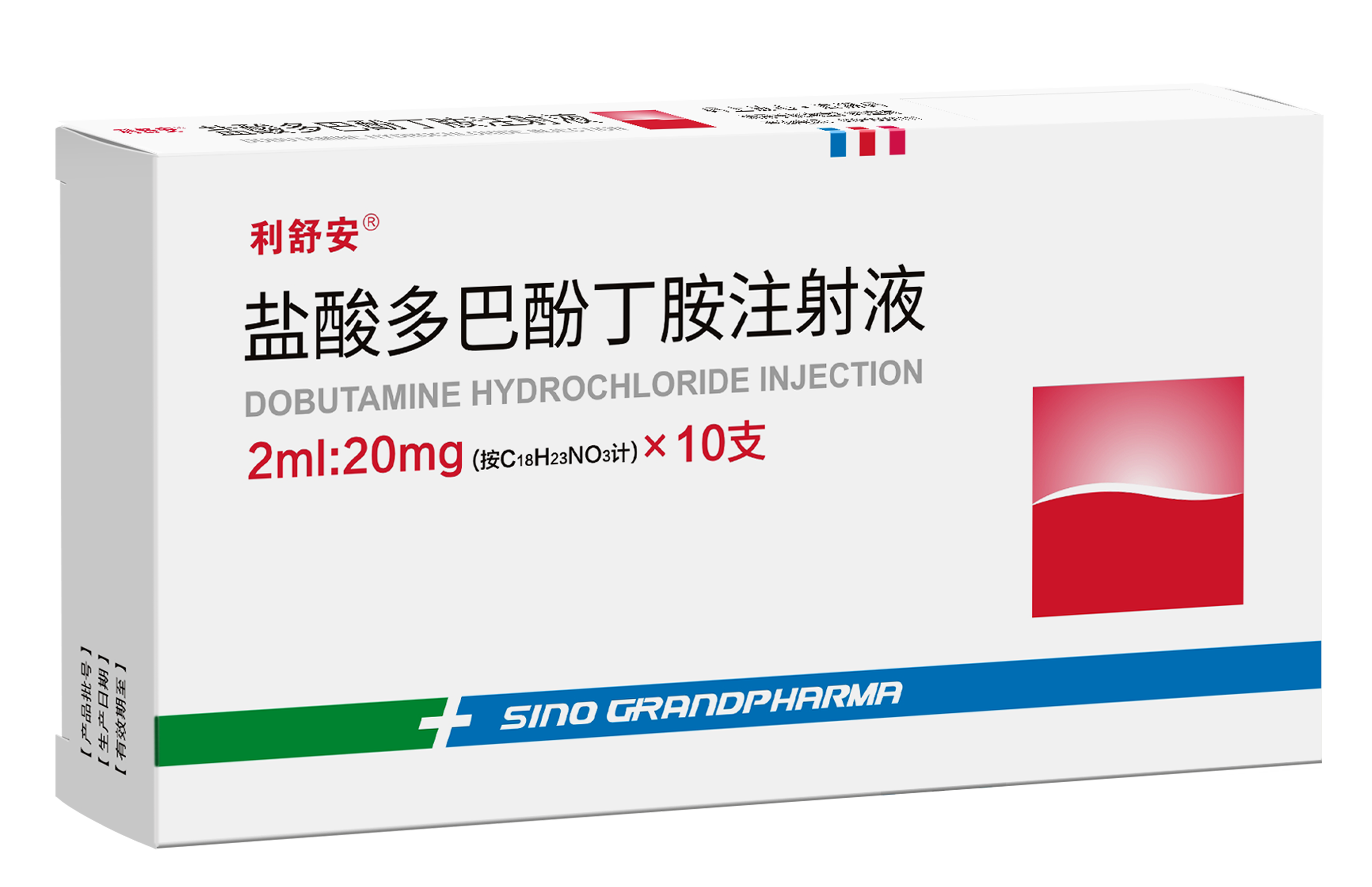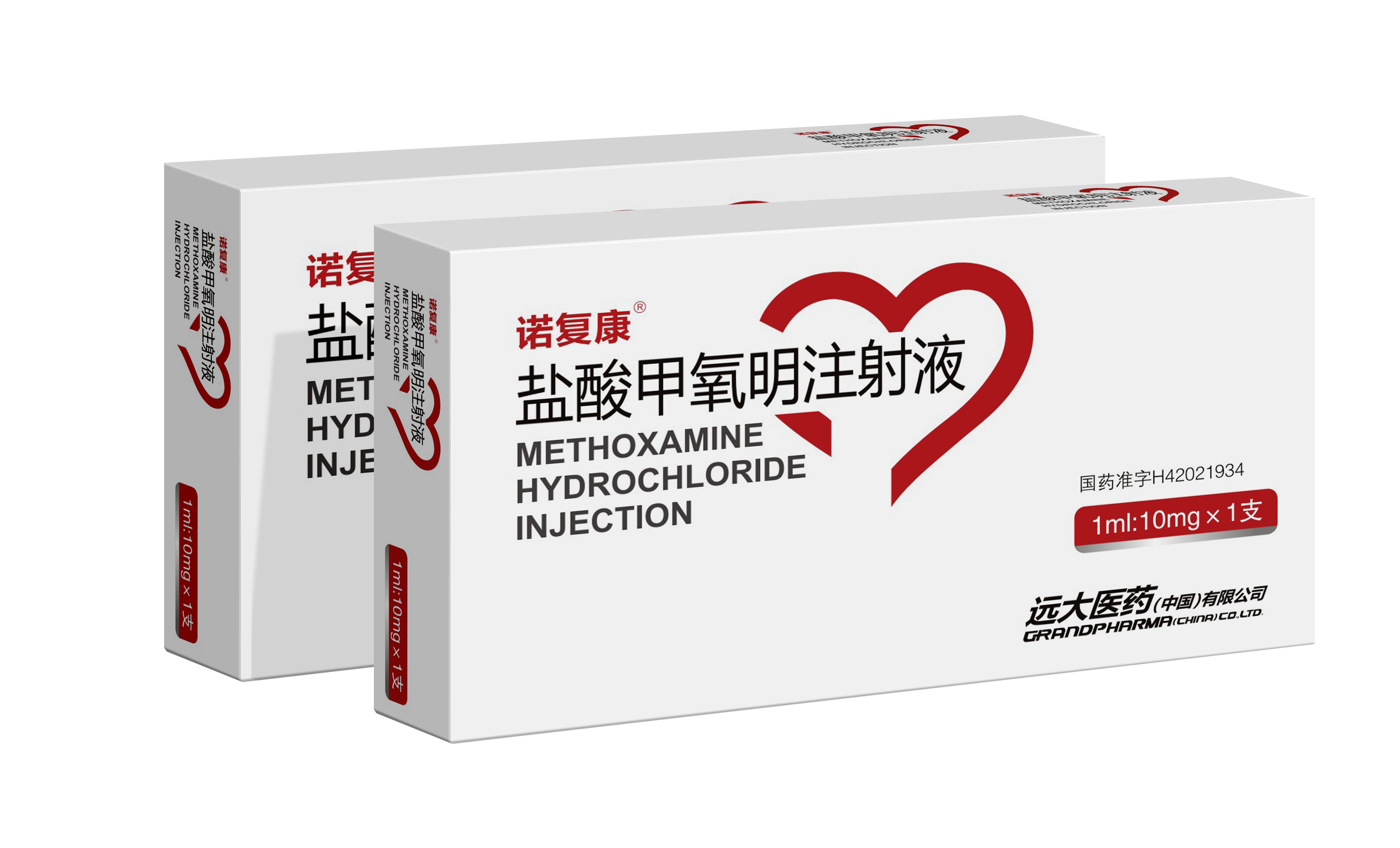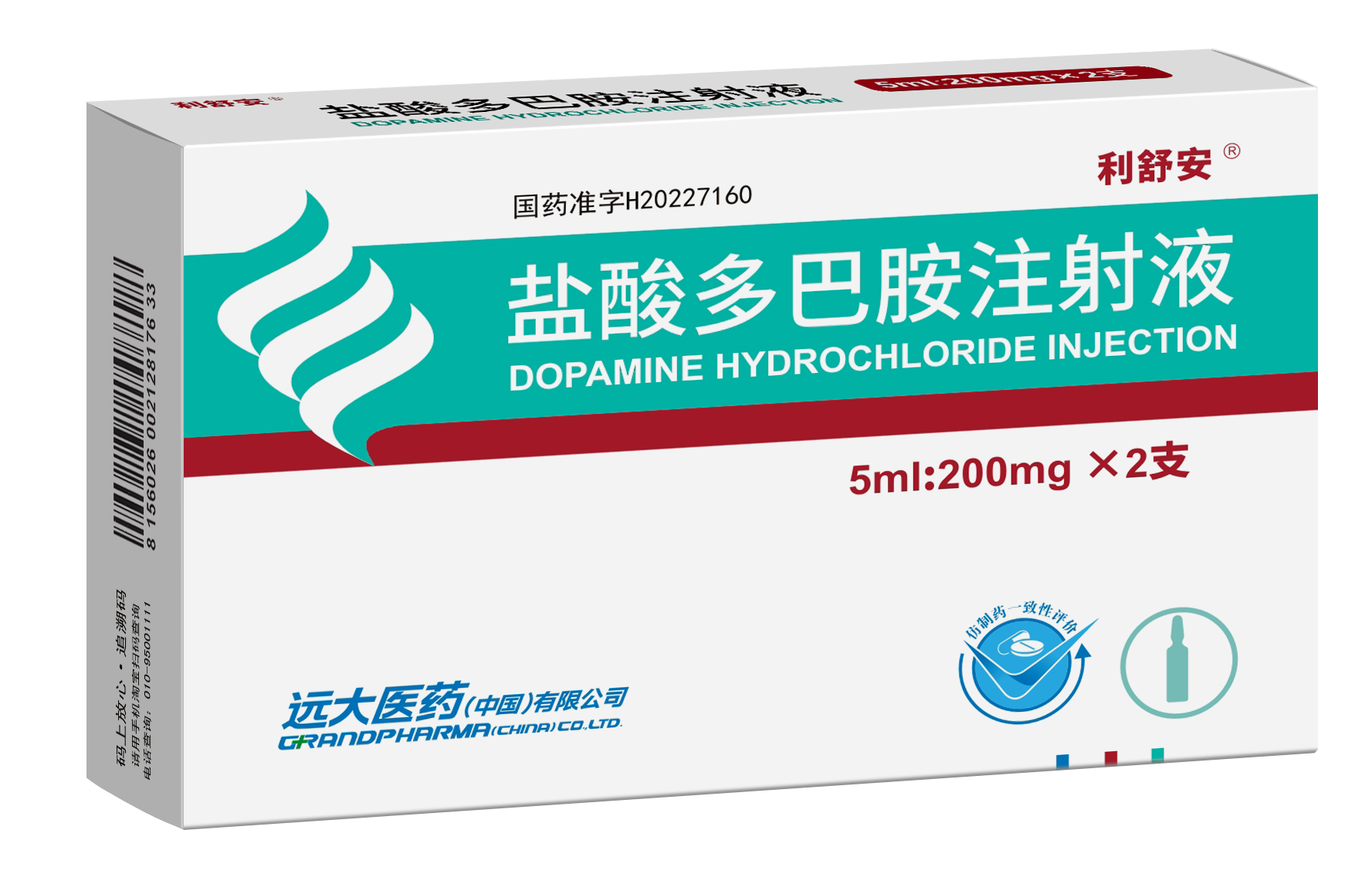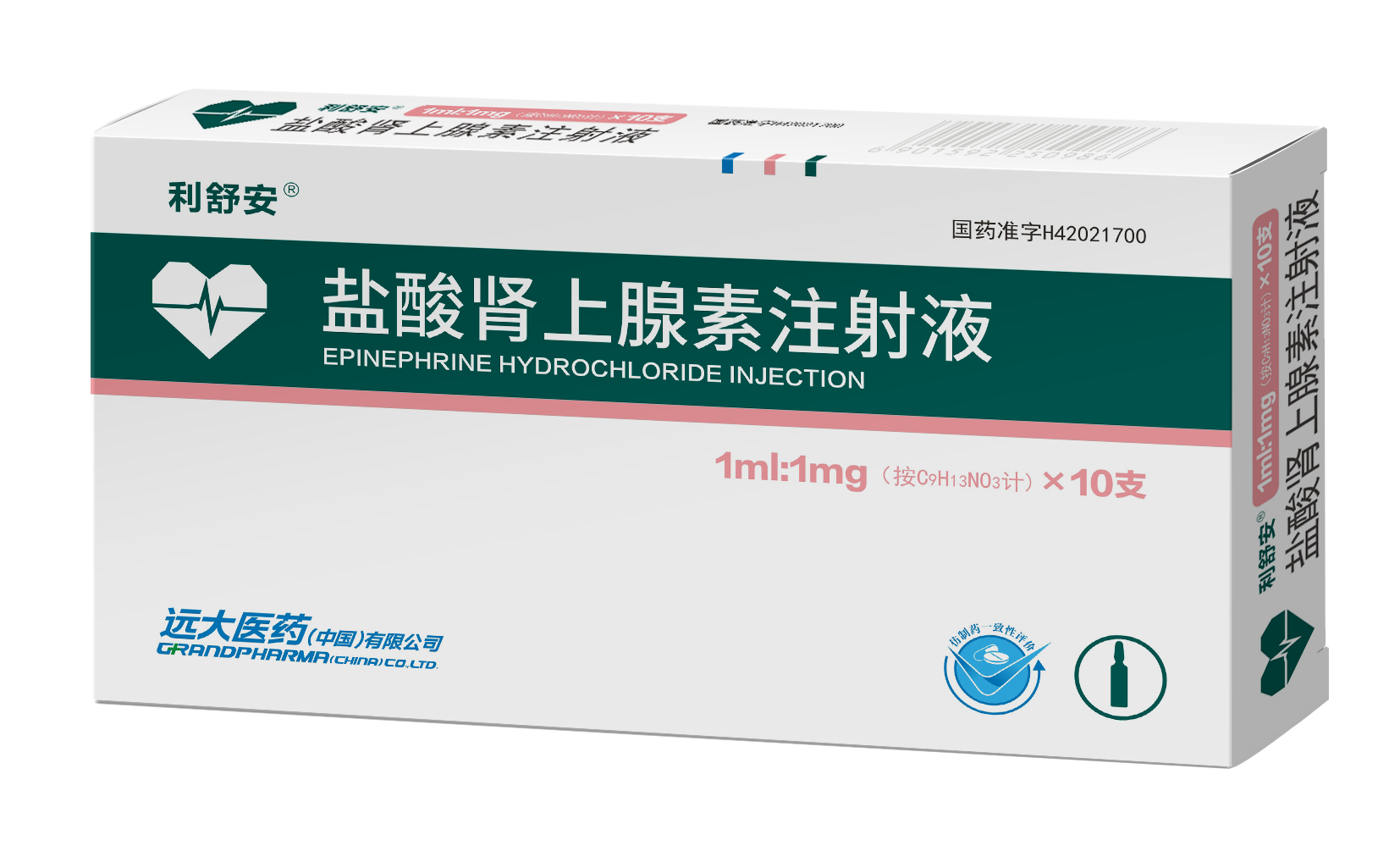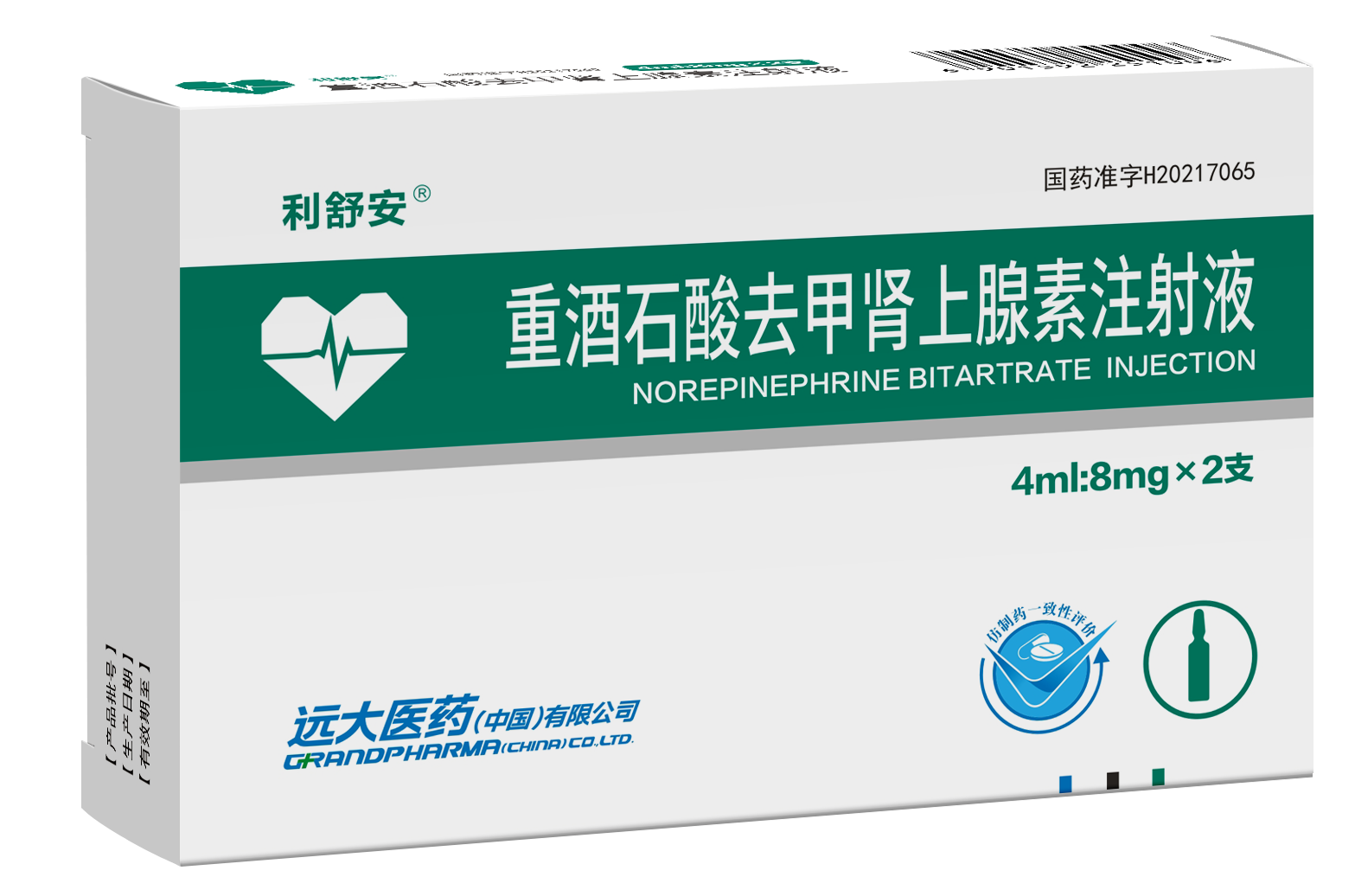Usage and Dosage: Common dosage: subcutaneous injection, 0.25-1 mg per time; maximal dose: subcutaneous injection, 1 mg per time. Clinically used for: 1. Rescue of anaphylactic shock, such as anaphylactic shock caused by penicillin. Since this product has the effects of exciting the myocardium, raising blood pressure and relaxing the bronchi, it can relieve symptoms of anaphylactic shock, including weak heartbeat, blood pressure drop and dyspnea. Subcutaneous or intramuscular injection at a dose of 0.5-1 mg, or slow intravenous injection at a dose of 0.1-0.5 mg (diluted to 10 ml with 0.9% sodium chloride injection); if the therapeutic effect is not good, it may be changed to intravenous drip at a dose of 4-8 mg (dissolved in 500-1000 ml of 5% glucose solution). 2. Rescue of cardiac arrest: It can be used for rescuing cardiac arrest caused by anesthetic and surgical accidents, drug poisoning or heart block, in which case, 0.25-0.5 mg of the product diluted with 10 ml normal saline is administered by intravenous (or intracardial) injection, while cardiac compression, artificial respiration and acidosis correction are performed. This product can also be used for rescue of cardiac arrest caused by electric shock when combined with the defibrillator or lidocaine. 3. Treatment of bronchial asthma: The effect is rapid but not lasting. With subcutaneous injection at a dose of 0.25- 0.5 mg, it takes effect within 3- 5 minutes, but the effect can only last for 1 hour. When necessary, repeated injection is recommended every 4 hours. 4. Combined use with local anesthetics: Add a small amount of the product (about 1 : 200000-500000) to local anesthetics (such as procaine). In the mixed drug solution, the concentration of this product should be 2-5 μg/ml, with the total amount not exceeding 0.3 mg. It can reduce the body’s absorption of local anesthetics to prolong their efficacy and reduce their side effects and it can also reduce bleeding at the surgical site. Adverse reactions related to intramuscular or subcutaneous injection: common adverse reactions of systemic epinephrine administration, including anxiety, apprehension, restlessness, tremor, weakness, dizziness, sweating, palpitations, pallor, nausea and vomiting, headache, and dyspnea. These symptoms occur in some patients receiving therapeutic doses of epinephrine, but are more likely to occur in patients with heart diseases, hypertension or hyperthyroidism 5. Stopping nasal mucosa and gum bleeding: Fill the bleeding site with a gauze pre-soaked in 1:20000-1:1000 diluted product solution. 6. Treatment of urticaria, hay fever, serum reaction, etc.: Perform subcutaneous injection with 0.2-0.5 ml of 1:1000 diluted product solution, which can be repeated once more if necessary.



.png)
